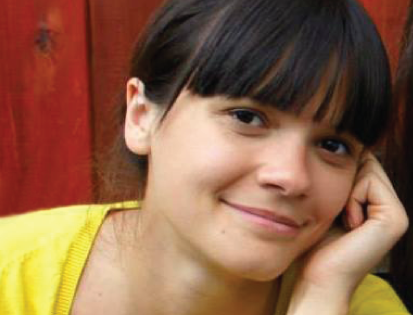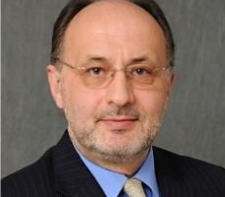Keynote Speakers

Serghei Mangul
University of Southern California, USADr. Mangul is an Assistant Professor in the Department of Clinical Pharmacy at the University of Southern California School of Pharmacy. His lab designs, develops and applies novel and robust data-driven, computational approaches that will accelerate the diffusion of genomics and biomedical data into translational research and education. His lab believes in data analysis transparency, effective sharing, reproducibility, software usability, and archival stability to foster a sustainable data science ecosystem in biomedical research. He holds a Ph.D. in Bioinformatics from Georgia State University. Dr. Mangul obtained B.Sc. in Applied Mathematics from Moldova State University, Chisinau, Moldova. He completed postdoctoral training with Prof. Eleazar Eskin in computational genomics at the University of California Los Angeles (UCLA). He is a recipient of the National Science Foundation CAREER award.

Victoria Popic
Broad Institute, USADr. Victoria Popic is a Principal Investigator and Schmidt Fellow at the Broad Institute of MIT and Harvard. She designs algorithms for genome analysis and interpretation, with a focus on efficiency, scalability, and privacy. Her work leverages techniques from artificial intelligence (in particular, computer vision and deep reinforcement learning), sketching algorithms, and combinatorics to address problems such as structural variation discovery and clonal evolution in cancer, genome phasing, and assembly. Victoria earned her Ph.D. in computer science from Stanford University. She also holds a B.S. in computer science, a B.S. in mathematics, and an M.Eng. in computer science from MIT.

Alexander Zelikovsky
Georgia State University, USADr. Alexander Zelikovsky is a Distinguished University Professor at the Department of Computer Science at Georgia State University, USA. Prof. Zelikovsky is known for an approximation algorithm for the minimum Steiner tree problem with the approximation ratio 1.55. Other areas of interest of Prof. Zelikovsky are bioinformatics; discrete algorithms and combinatorial optimization; computer-aided design for very large system integration; physical design & design for manufacturing; computational biology; graph theory; computational geometry.

Taras Oleksyk
Oakland University, USADr. Taras Oleksyk is an Assistant Professor at the Oakland University. Dr. Oleksyk research interests are in evolution, comparative genomics, environmental toxicology, and genetic epidemiology. His background is in genomics, specifically as it relates to adaptation, speciation and disease. His scientific interests are in two general areas. The first is in genomics and admixture of human populations. His lab is involved in several studies focusing on human population genetics and the analysis of the candidate disease genes in the Caribbean and Eastern Europe. His other interest is in evolution and conservation of endangered species in the Caribbean. Dr. Oleksyk is involved in studies focusing on genome assembly and analysis; selection scans (Amazon parrots, Hispaniolan solenodons, African cheetah and elephants). Generally, he is interested in the study of genome diversity and its implications to evolutionary processes of adaptation and speciation.

Ian Toma
George Washington University, USADr. Toma is an Associate Research Professor at Department of Clinical Research & Leadership and Genomic Medicine Division, School of Medicine and Health Science, The George Washington University, USA. Dr. Toma is teaching a number of courses in Genomics, Biomedical Informatics, Health Information Technology, and Digital Health. His scientific activities are focused on translational medicine: discovery of genomic biomarkers of diseases and response to drugs. The current and past projects include a range of therapeutic areas, primarily cardiovascular and respiratory diseases, immunity and infections, and cancers. One of his recent projects initiated and implemented during his Fulbright Scholar mission to Moldova studied the host-immune response to early vaccination in neonates born to HIV-infected and uninfected mothers. For the ECBM2022, Dr. Toma will share his perspectives on the translational bioinformatics – the use of information technology in interpretation of genomic and other types of biomedical data, including sourcing the information, development of projects, and applying for funding.